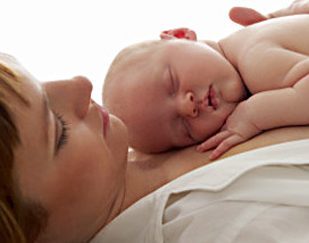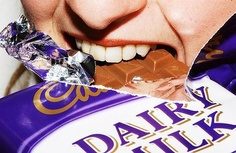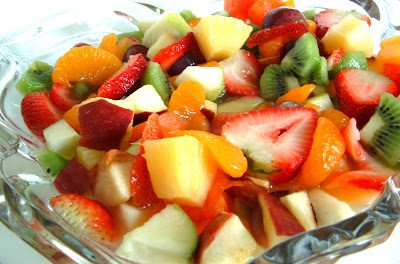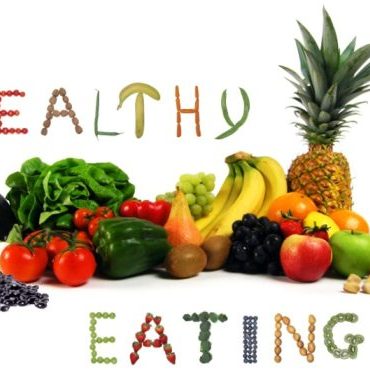 Our health guru answers your questions.
Our health guru answers your questions.
Can I have alcohol when I am breastfeeding? I stopped drinking when I was pregnant and want to revert to my previous habits of 2-3 glasses of wine each night.
Nine months seems like an eternity to women who enjoy their wine and one of the most popular questions that lactation consultants hear is, “Now that the baby is born, can I PLEASE have a drink?” Let’s start with three facts about alcohol consumption while breastfeeding, so you can make a stress-free, informed decision. Breastfeeding women are advised not to drink alcohol, especially while breastfeeding is being established during the first month of the baby’s life
Alcohol, which shows up quickly in foremilk and in hindmilk, does affect the central nervous system of you and your baby. (Light, occasional drinking is not considered to be a major risk for the breastfeeding mom and baby.) Studies have shown slower motor development in breastfed babies when mom drinks alcohol on a regular, frequent basis.
Milk ejection can be inhibited if excess alcohol is consumed in large quantities. Alcohol decreases prolactin output, blocks the release of oxytocin, hence reducing milk supply. As a result, the baby’s sucking patterns may change where they are sucking more but getting less out, which can cause a great deal of frustration for the two of you.
Ingesting excess alcohol will change the flavour of breast milk. In addition, one study showed that the odour of the milk was different when mothers drank alcohol and that their babies took in less milk, even though they nursed for time periods similar to babies who were not exposed to alcohol in breast milk. The authors of the study believe that the babies were reacting to the odour.
There are also other factors to consider. The following will affect the effect of alcohol on you and your baby:
• The timing of your drink. Alcohol passes very rapidly between blood and milk. If you have a drink on an empty stomach, peak levels are reached within a half-hour to an hour. If you drink while you’re eating, you’re looking at an hour to an hour and a half.
• Your weight
• Your menstrual cycle
• Your baby’s age
Obviously, it’s ideal that the breastfeeding mother avoids alcohol altogether, but for most, that’s an unrealistic expectation. It is recommended that, if you do intend to have an alcoholic beverage, you nurse the baby before having the drink and then wait for at least two hours per drink consumed before putting the baby back to the breast.
 What foods should one avoid if you have high cholesterol? I have recently had a blood test and the result was that my cholesterol was higher than the reference range. I would like to reduce my cholesterol without going on medication.
What foods should one avoid if you have high cholesterol? I have recently had a blood test and the result was that my cholesterol was higher than the reference range. I would like to reduce my cholesterol without going on medication.
People with high cholesterol should avoid or limit their consumption of certain foods. Knowing which foods to avoid high cholesterol is an important step, but it doesn’t end there. There are a number of other foods that may not be considered high cholesterol foods but that still raise your LDL cholesterol (bad cholesterol) more than high cholesterol foods do.
Cholesterol comes from animals. If a food does not come from an animal (such as fruits or vegetables), then it does not have cholesterol. Foods with the highest amounts of cholesterol are eggs and liver. For example, egg yolk has 213 mg of cholesterol.
Other high cholesterol foods to avoid or eat in moderations are Whole-milk dairy products, Butter, Cream, Ice cream, Cream cheese, Certain shellfish (such as shrimp), Organ meats (such as kidney and brain), Duck and goose (which have more cholesterol than chicken or turkey; the skin on these animals is high in cholesterol).
Eating high cholesterol foods is just part of the problem for people with elevated cholesterol. In most cases, the main cause of high blood cholesterol is eating too much of certain types of fat. Saturated fat and trans-fatty acid (also known as trans fat) are types of fat that raise your cholesterol levels.
Saturated fat raises your LDL cholesterol (bad cholesterol) level more than anything else in your diet. As part of a heart-healthy diet, it is recommended that people limit their intake of saturated fat. Saturated fats are found in most animal-based food, including Beef, Veal, Poultry, Processed meats (such as hot dogs, sausage, bologna, and salami), Egg yolks, Butter, Whole-milk dairy products (such as cheese, milk, cream, and ice cream) . Baked goods (store-baked goods are often made with egg yolks and saturated fats; they may also contain trans fatty acids). Try and eat lean meat and chicken.
Some plant-based foods are also high in saturated fats, including Palm oil, Palm kernel oil, Coconut and coconut oil. Because these foods come from a plant, they are not considered “high cholesterol foods.” Despite this, they can have a big impact on increasing blood cholesterol levels, so these are foods you may want to avoid if your cholesterol levels are already high.
Trans fatty acids, or trans fats, are made when liquid vegetable oil is heated in the presence of hydrogen. This process is known as hydrogenation. The more hydrogenated an oil is, the harder it will be at room temperature and the more trans fat it will contain.
Trans fat is found in Commercially baked goods, Margarine, Snack foods (biscuits, cakes and crackers), Processed foods, fried foods (such as French fries or doughnuts).
Trans fats are even worse for cholesterol levels than saturated fat and cholesterol itself because they raise LDL (bad) cholesterol and lower HDL (good) cholesterol.
When you are reading food labels, look for the words “hydrogenated” and “partially hydrogenated” in the ingredient list. These foods are loaded with trans fat and saturated fat. Also, look for “trans fat” on the food label. It often appears directly below “saturated fat.”
Try and eat a balanced diet of unprocessed foods – vegetables, fruit, low-fat dairy, fish, legumes, low-fat meat, chicken.
 Why do I keep on putting on weight after having my gall bladder removed?
Why do I keep on putting on weight after having my gall bladder removed?
Removal of the gallbladder, usually because of gallstones, is quite a common surgical procedure. The organ does in fact serve important purpose indigestion. It stores and releases bile, a substance that helps the body process fat. When the gallbladder is removed, bile still flows from the liver (where it originates) into the small intestine. However, the release is more haphazard and can result in discomfort after a meal—particularly one that is high in fat. My first recommendation is to consider eating smaller meals evenly spaced throughout the day and to reduce your intake of dietary fat. You may find these minor changes are all you need. Perhaps you are gaining weight as your portions are too large, so reduce the size of your meals. If that doesn’t work, try slowly increasing your intake of fibre—from whole grains, fruits, vegetables, beans, and lentils—which helps speed the movement of food through your system. More efficient digestion can also help reduce bloating. Another useful practice is to take a daily probiotic supplement. Research suggests that the friendly bacteria in these supplements can help break down food, increasing the efficiency of digestion.
In addition, commence an exercise program, and aim at doing 60 minutes of exercise each day. A few gradual adjustments should ensure that you and food get along just fine, even without your gallbladder there to referee.
Most days I have 2 rolls of sushi with cooked tuna. It is very filling and keeps me going through the afternoon. Is this a good lunch or is it too heavy in carbs/fats?
Sushi is a healthy lunch – generally filling, and balanced nutritionally. Try and make a selection that does not have mayonnaise as this adds unnecessary saturated fat. Tuna is a wise choice as it is high in Omega-3 fatty acids, which are the “good” fats. However, it is not possible to look at one meal in isolation, I should rather look at your total food intake for the day and comment on that.
I have read that to maximise the loss of stored body fat you should wait for two hours after eating before you exercise. Is this correct?
I would definitely wait two hours after eating before doing an aerobic workout – more to prevent indigestion, cramping or reflux than to maximise the burning of body fat. The optimum time to exercise is in the morning as this increases your metabolic rate for a few hours at the start of the day. However, I believe in exercising whenever there is time available. Schedules vary, no matter when you do the exercise you burn calories and it is beneficial whether morning, noon or night.

